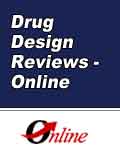Abstract
The complement system plays an essential role in host defense against infectious agents, but can cause substantial damage to self-tissues when activated inappropriately, contributing to the pathology of a large number of diseases including autoimmune diseases, adult respiratory distress syndrome and stroke. In the transfusion medicine setting, complement sensitization of red blood cells (RBCs) can result in life-threatening hemolytic transfusion reactions as well as hemolytic anemias. There is thus a critical need for a therapeutically applicable inhibitor to reduce complementmediated RBC destruction. To date several potent complement inhibitors that act at various steps in the complement activation cascade have been described, some of which have been tested in preclinical animal models as well as in human clinical trials. However, none of these has yet been adopted as a therapeutic agent for prevention of immune hemolysis. The potential of developing selective and potent complement inhibitors for the effective and safe prophylactic use and treatment of hemolytic transfusion reactions and complement-mediated hemolytic diseases will be discussed here.
Keywords: complement system, eosinophil, membrane attack complex, anaphylatoxin
 1
1

